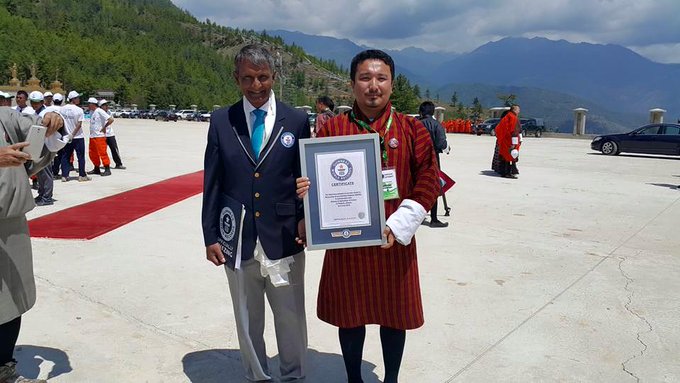
World’s only carbon-negative country Bhutan is giving us renewable energy goals
Bhutan is a small country situated between India and China, which are major producers of carbon dioxide and yet, it has managed to achieve complete carbon neutrality in the past years.
With a small population of 750,000 people, Bhutan is believed to be one of the greenest countries in the world. Practices such as planting trees in abundance and using electric vehicles have made this possible for a small nation like Bhutan.

Unlike other countries, Bhutan has discarded the concept of making government policies on the basis of the Gross Domestic Product (GDP). Instead, they have based their decisions on the country’s Gross National Happiness (GNH) index.
This concept has proved to be successful for Bhutan as 91 per cent of its citizens are narrowly, extensively or deeply happy, according to a 2015 survey.
Bhutan’s Gross National Happiness index gives the natural world a central place in the making of public policy, and environmental protection is a core guiding principle in Bhutan’s constitution.
The GNH of this nation plays an important role in the implementation of government policies which are based around four basic pillars, one of which is environmental conservation.
Carbon neutral nation becomes carbon negative nation
Earlier, Bhutan’s Prime Minister Tshering Tobgay had the goal of making his country a carbon neutral zone. His main purpose was to make sure Bhutan doesn’t contribute to the growing carbon dioxide released into the atmosphere.
His new policy of making his nation consist of minimum 60 per cent forest coverage was well received among citizens who have been planting trees excessively ever since.
With 72 per cent forest coverage in his nation, the overall carbon production has been nullified. Bhutan produces around 1.5 million tonnes of carbon every year but because of the immense greenery, more than 6 million tonnes of carbon is absorbed.
After the new government came to power, Bhutan’s priority was to make the nation as environment-friendly as possible.
AFTER THE NEW GOVERNMENT CAME TO POWER, BHUTAN’S PRIORITY WAS TO MAKE THE NATION AS ENVIRONMENT-FRIENDLY AS POSSIBLE:
Valuing environment over economical growth
In a TED talk given by Tshering Tobgay, he had admitted that his nation is not perfect. He said that like every country, his Bhutan is not without problems.
Despite this, the uniqueness of Bhutan lies in the fact that the citizens and the government have made environment conservation their priority, rather than economical growth.
Buddhists hold trees very important in their religion which is the main reason why people there are so keen on planting them.
Around 100 volunteers in Bhutan set the world record for planting the most trees in an hour by planting 49,672 trees.
With the constant rise in tree plantation and forest coverage in Bhutan, the government hopes that they maintain their position on the absorption of produced carbon.
The Bhutanese government has also predicted that they will produce 100 per cent organic food by the year 2020, they’ll produce zero waste by the year 2030 and they’ll produce zero net greenhouse gas and increase solar and wind energy availability.
Carbon production in the world
With the increase in technological advancements and mass production of packaged products, the carbon production from factories has increased by a huge percentage.
Because of this increase, the holes in the ozone layer have been expanding, allowing UV rays to reach the surface of the earth and causing major health issues.
The production of carbon has also led to the increase in the global air temperature and is leading the pollutants to cause respiratory and cardiovascular problems in humans.

















